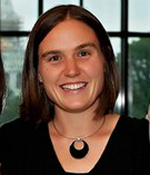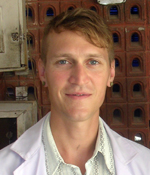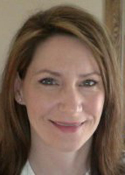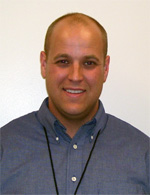 Catherine Graeve, PhD
Catherine Graeve, PhD
Associate Professor
School of Nursing
St. Catherine’s University – St. Paul, MN
 Catherine Graeve, PhD
Catherine Graeve, PhDAssociate Professor
School of Nursing
St. Catherine’s University – St. Paul, MN
What was your educational and relevant work experience prior to enrolling in the OEHN program?
Prior to enrolling in the doctoral program, I completed my MPH in occupational and environmental health nursing and found the courses fascinating. Before that, I worked in oncology and hospice as a nurse. I also volunteered in rural West Virginia with communities studying the health care delivery system and community public health.
What got you interested in the field of occupational & environmental health nursing?
I have always been interested in public health, and entered nursing school with that focus in mind. I worked for many years as a nurse in cancer care. I loved my job focusing on the care of patients and families, but also wondered about what could be done prevent such devastating illnesses. I wanted to learn more about environmental exposures, many of which happen in the workplace. Occupational health seemed like a logical place to focus public health prevention efforts.
What made you choose the University of Minnesota?
The University of Minnesota is a dynamic institution with wonderful opportunities and amazing people.
What would you say to a student considering the program?
This is a fabulous learning opportunity with excellent professors, support staff and fellow classmates.
 Josh Gramling, COHN-S
Josh Gramling, COHN-SDirector, Occupational Health, Jail Health, and Community Flu Vaccination Program
HennepinHealth
Describe your most recent job.
I direct the Occupational Health, Jail Health, and Community Flu Vaccination Program at HennepinHealth, an integrated health care system that includes a nationally recognized level 1 adult and pediatric trauma center, an acute care hospital and a clinic system across Minneapolis and Hennepin County.
What was your educational and relevant work experience prior to enrolling in the Occupational and Environmental Health Nursing program?
I worked as a staff nurse from 2004-2009 in a variety of inpatient clinical departments at several hospitals. In December of 2015, I graduated with a master’s of science in public health nursing at the University of Minnesota’s School of Nursing.
What got you interested in the field of occupational & environmental health nursing?
I am passionate about prevention of health insults, and occupational and environmental health nursing appealed to me most, as it has career opportunities that are very concrete in the field where I can work on projects, as well as have research opportunities that further my goals.
What made you choose the University of Minnesota?
When deciding on a graduate program, I looked at schools that had a strong reputation for graduate public health education. Although I worked in inpatient nursing I was interested in changing to a more public health-focused career path. The School of Nursing and the School of Public Health at the University of Minnesota offered a dual Master’s in Nursing and Public Health, which was the driving impetus for me to apply to this school. In the end I decided on pursuing a PhD in Occupational and Environmental Health Nursing after I finished my Masters of Science in Nursing.
What would you say to a student considering the program?
I think this field is exceptional in terms of career potential, and the staff and faculty of the program are very supportive of students pursuing research interests. I was encouraged and given the opportunity to work independently abroad in India for my field experience, and have had no shortage of support in pursuing my research.
 Kari Cline, MPH
Kari Cline, MPHEmployee Occupational Health Nurse
North Memorial Health
What is your current/most recent job title?
I am working as an employee occupational health nurse at North Memorial Health. It is a large, urban, level one trauma centers.
Describe your most recent job – what do you do? What is a typical day like?
Healthcare organizations utilize employee health nurses to manage a wide range of health and wellness programs for their diverse worker population. Some of the work I’ve done in healthcare includes: pre-placement examinations, work injury/illness assessment and case management, accident investigation, ill worker triage, wellness coaching, medical leave management, return to work assessment, vaccination promotion and administration, post infectious disease exposure investigations, respirator fit testing, TB screening, health promotion activities and fairs. Luckily, I’ve never done all of those on one day! A typical day as a staff employee health nurse is difficult to capture, but a typical week would involve about half of my time working with individual employees face to face, and the other half of my time would consist of telephone work, medical record/document review, and meetings.
What is/was the most important part of your job?
The most important part of my job is being a strong advocate for the employee’s wellbeing. In healthcare, our “product” comes down to a human interaction between staff and patients. If a staff member does not feel safe, supported and healthy, that can certainly interfere with the care that is provided. Being a strong advocate for employee wellness is not only an ethical responsibility, it is truly a business need.
What do you like best about your job?
I really enjoy the diversity of the healthcare worker population. There are few industries that employ such a wide range of ages, cultures and educational backgrounds.
What did/do you like least about your job?
I wish more time and money could be used for wellness and prevention. Many work related injuries, attendance issues and job performance are negatively impacted by employees in difficult social situations, untreated mental health conditions, and poor general physical conditioning. Employers cannot control all of these factors, but it certainly would be more rewarding to work on those determinants rather than deal with them after they become problematic.
What got you interested in the field of occupational & environmental health nursing?
I was lucky to have many great role models and mentors along my career path. I hadn’t started down the occupational health path intentionally, but passionate people in the occupational health field drew me in. The Twin Cities has an exceptional occupational health community and have always felt welcomed and encouraged. Even though occupational health nurses often have a high level of independence, I know I have many colleagues out there to support me.
What keeps me going is the reward of seeing the results of my interventions. I have had the opportunity to see lives transformed by great workplace wellness, safety and health initiatives. When you have the same ‘patients’ for years, it’s a great opportunity to work on change over time. It allows you to develop relationships with the employee population that is very rich.
Where do you see yourself contributing in the future to this field?
Since others so positively affected me in the occupational health field, I would like to do the same for others. I hope I can share some of my energy for occupational health through mentorship. I am also interested in being involved in occupational health research.
What did you gain from your University of Minnesota education experience?
As an experienced occupational health nurse entering the program, I was surprised to find that strengthening my foundational knowledge changed my practice. One simple example of this is how my understanding statistics and study design has allowed me to be a better consumer of published research. I now read more than just the abstract, and can judge the validity of the information presented.
The program also gave me a greater understanding of my public health colleagues. I collaborated with students in medicine, policy, industrial hygiene, research, injury prevention, administration and others. Sharing core classes with the larger public health group allowed me to gain a common ground with them, making communication and collaboration easier.
What advice would you give someone just starting out in the field?
Occupational and environmental nursing has many facets; find the one that fits you best. Working for an industry, clinic, insurance company, government agency or as a consultant offer different experiences for an occupational health nurse. If you try one on and it doesn’t fit, take what you learned and apply it to a different setting.
 Peter Mitchell, MSN, APRN, FNP-BC, COHN-S
Peter Mitchell, MSN, APRN, FNP-BC, COHN-SOHN Nurse Practitioner
Minneapolis Veterans Health Care System
What was your educational and relevant work experience prior to enrolling in the Occupational and Environmental Health Nursing program?
My background included 25 years of long-term, inpatient, and ambulatory care of adults. Seeking greater responsibility, I completed the Family Nurse Practitioner track, Master’s degree program. This eventually led me to veterans’ health and professional practice in the excellent, local Veterans’ Administration system.
What got you interested in the field of occupational & environmental health nursing?
Because the population approach of occupational and environmental health nursing encompasses the health and safety of people at work, it allowed me to serve at the intersection of the organization’s mission and all the individuals making this complex health care system work. Occupational and environmental nursing draws from multiple disciplines combining knowledge and skills.
What made you choose the University of Minnesota?
The Midwest Center for Occupational Health and Safety at the University of Minnesota, School of Public Health is a recognized leader in occupational health and safety education for the nation. Its accomplished faculty and dedicated staff especially impressed me.
What would you say to a student considering the program?
Explore whether you are ready to take your nursing career to this new level. I strongly recommend the University of Minnesota, School of Public Health for occupational and environmental health nursing at any stage of your career.
 Bryan Topp, MPH, COHN-S
Bryan Topp, MPH, COHN-SWhat was your educational and relevant work experience prior to enrolling in the OEHN program?
I received my BSN from the University of Nevada, Las Vegas and worked as an Emergency and ICU nurse for 6 years before I decided to return to school. I did not have much experience in occupational health, but I had networked with several occupational health nurses. I was very impressed with their careers and the variety of work that they were able do.
What got you interested in the field of occupational & environmental health nursing?
There are many aspects of occupational health that were interesting to me. Occupational health nurses get to be involved in public health, environmental health, primary care and case management. I liked the idea of working in a factory and having the opportunity to educate employees, and contribute to a safe and productive workplace.
Describe your most recent job—what do you do, what is a typical day like?
I now work in a corporate setting. I support occupational health programs in the United States and Latin America. I develop evidence based programs, research local regulations, provide consultation to plant occupational health nurses and assist with complex case management.
What is/was the most important part of your job?
Providing the necessary tools and training for our plant occupational health nurses to provide the best possible services to our employees.
What do you like best about your job?
I really enjoy new program development. I enjoy being able to work on multi-disciplinary teams to develop innovative strategies to protect the health of our workforce.
Where do you see yourself contributing in the future to this field?
I hope to have a larger role in international occupational health.
What did you gain from your University of Minnesota education experience?
I would not be in my current position if it was not for my University of Minnesota education experience. The program prepared me to transition into a career in occupational health. It also helped me to network with other occupational health professionals.
What advice would you give someone just starting out in the field?
Build your network. Join AAOHN, find a mentor, and meet with other occupational health professionals.